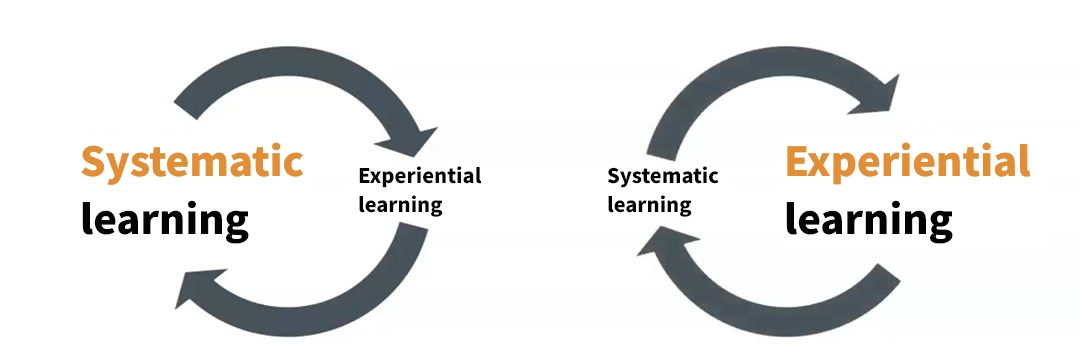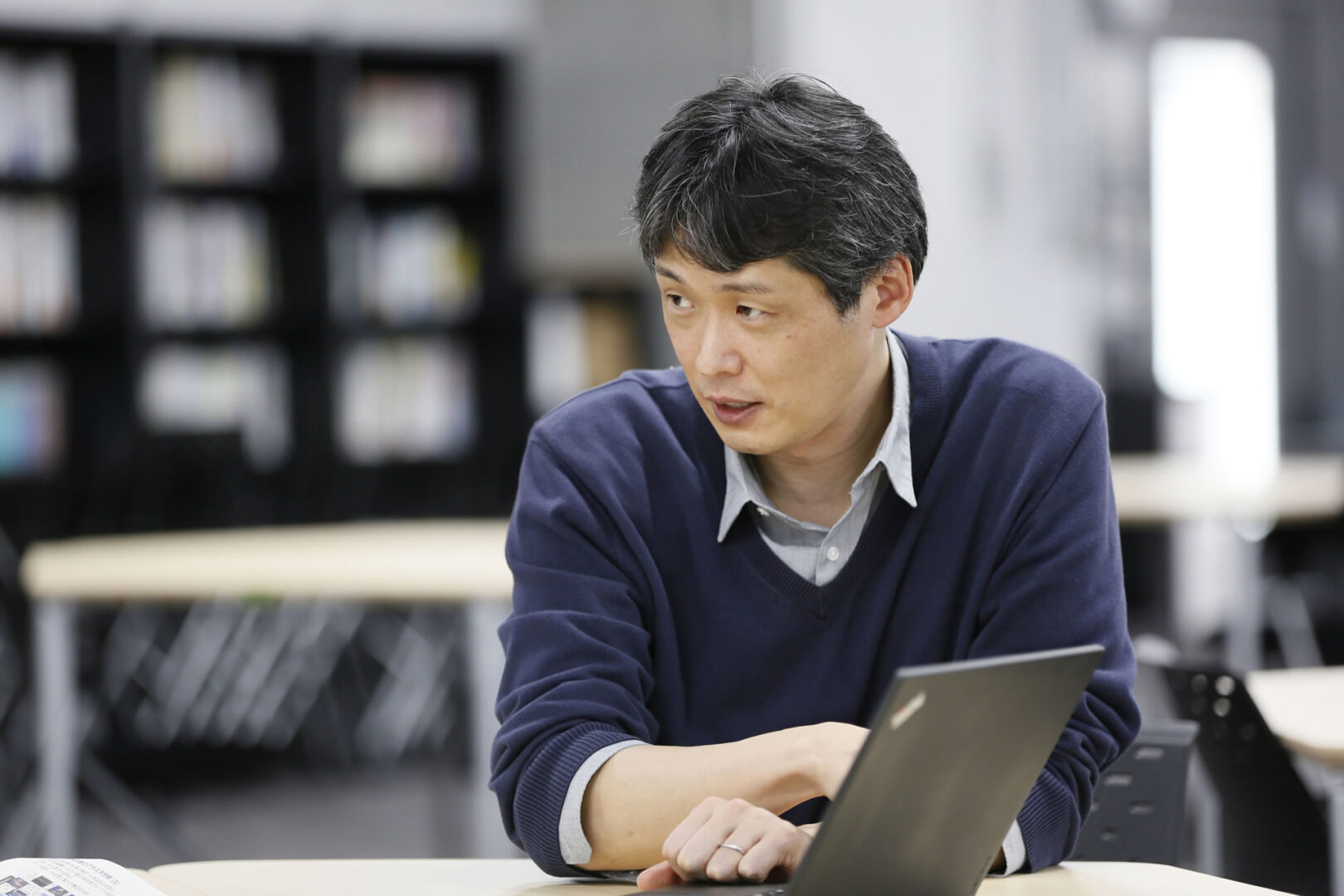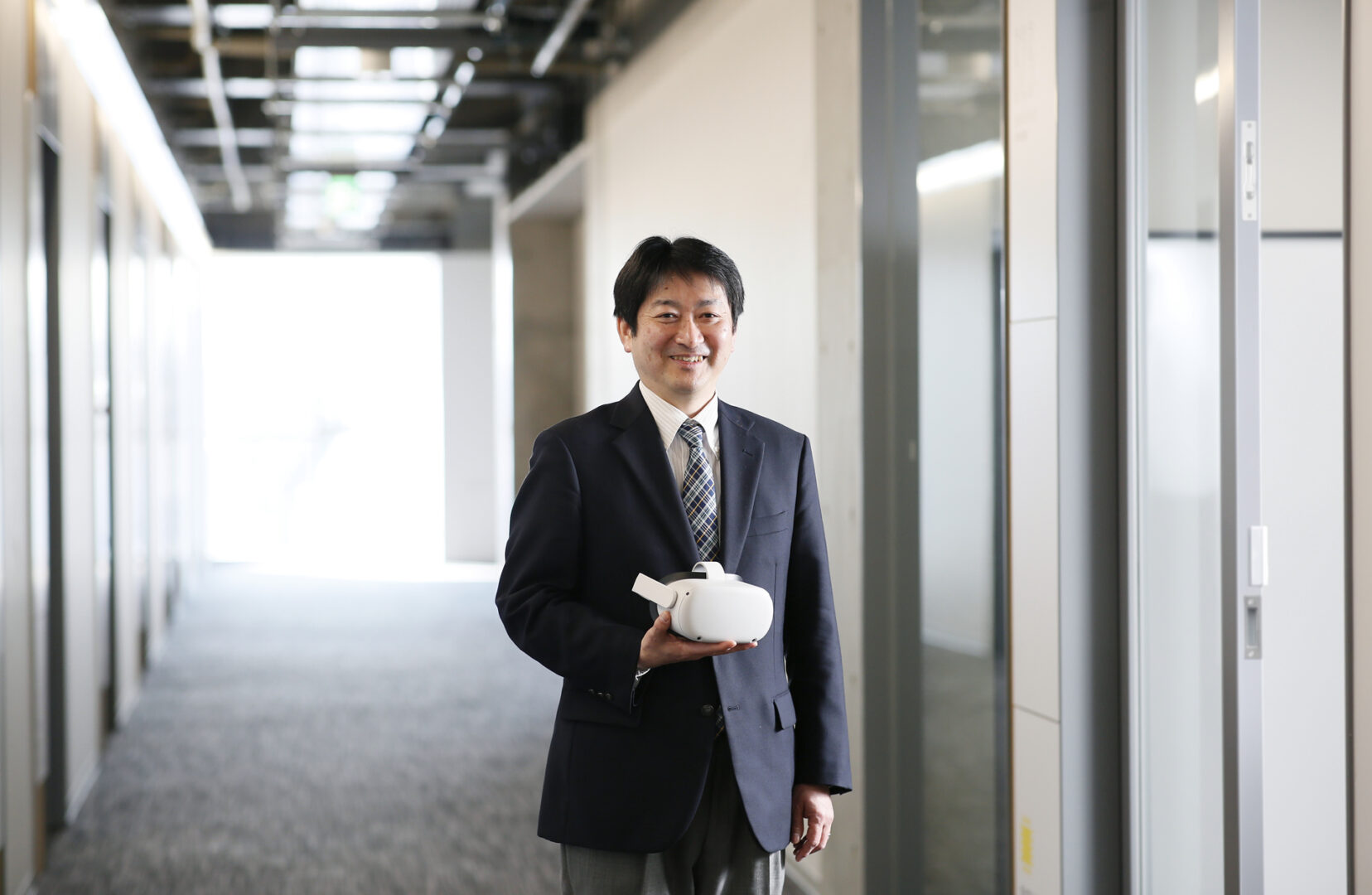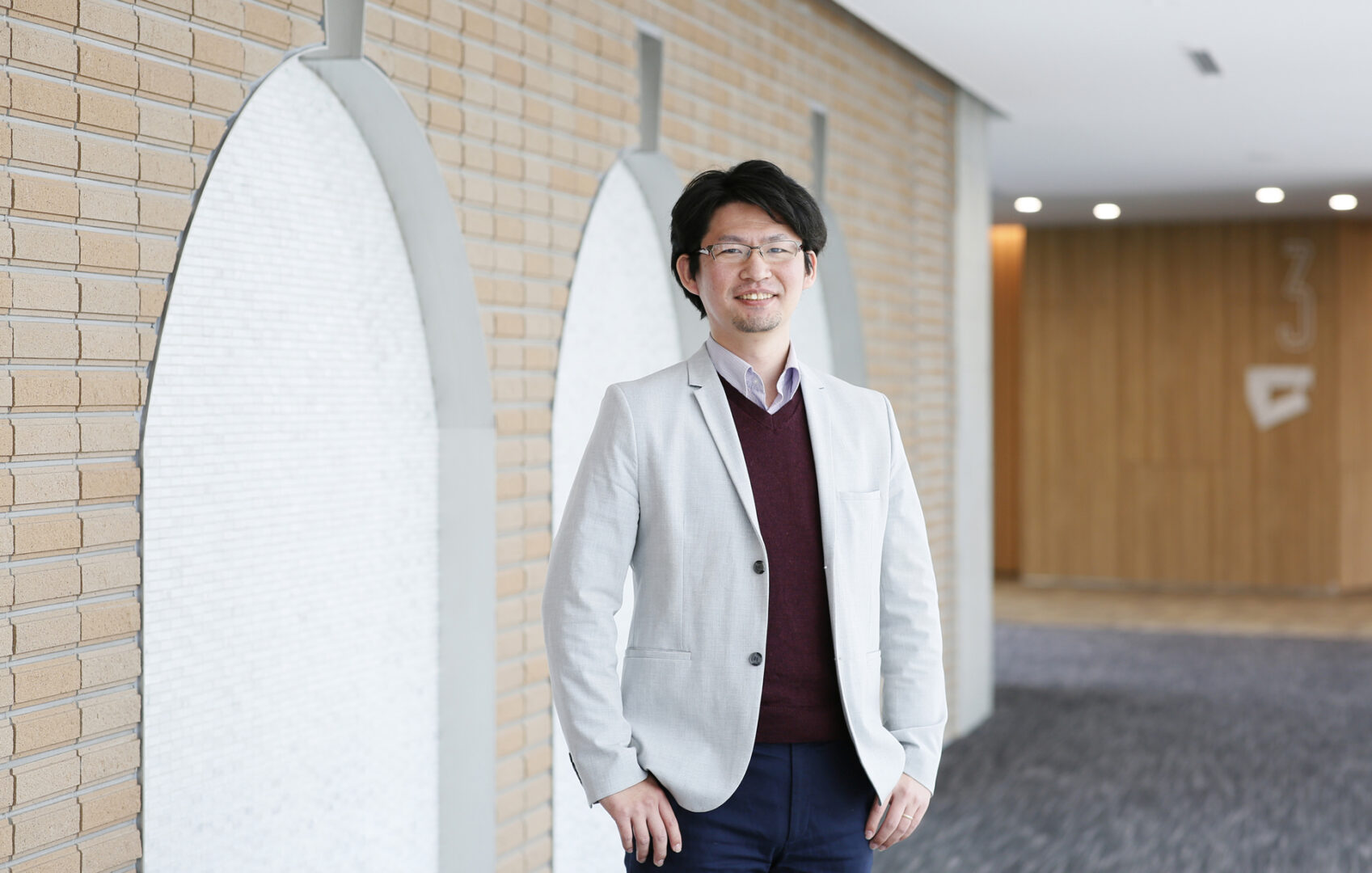Introduction to the Courses and Programs of the Faculty of Information Engineering
The Faculty of Information Engineering offers two courses and four programs, allowing students to create their own programs of study that align with their interests and aptitudes. By choosing courses in a wide range of subjects, students can discover their future paths, ultimately coming to play active roles as information engineers in various parts of society.
Choose One of Two Courses Based on Your Interests and Aptitudes
You can choose one of two courses based on your interests, aptitudes, and aspirations for the future. The knowledge gained and skills acquired vary from one course to the other.

-
Comprehensive Course
Students pursue an in-depth and systematic study of the concepts and technologies of information engineering, tailoring a program from four different areas of the field. Working within an environment that inherits the DNA and research rigor of the Faculty of Science and Technology—which includes Nobel laureates—students gain unparalleled knowledge and are exposed to world-renowned achievements in research.
Representative courses:
“Algorithms and Data Structures”
“Discrete Mathematics”
“Applied Analysis” -
PBL Course
This course introduces PBL (Project-Based Learning), a practical and hands-on way of learning how information engineering is used in the world. Students have the opportunity both to receive guidance from information engineers actively working in the industry—and acquire skills for collaborating with others.
Representative courses:
“Creative Thinking”
“Application Development”
“Introduction to PBL”
「先進プロジェクト実験I 」
Four Programs Covering a Wide Range of Information Engineering
Four programs cover different areas of specialization. Students in both the “Comprehensive Course” and the “Advanced Project Course” learn the basics of information processing technologies such as data science, programming, digital signal processing, and algorithms. Guided by their particular intellectual curiosities, they then focus on one or more programs of their choosing. While all students complete at least one program by the time of graduation, highly-motivated ones can complete all four programs and thus gain a breadth and depth of knowledge.
-
Physical Computing Program
This program deals with the field of materializing information. It covers the hardware necessary to acquire information,the software which utilizes that information, and how each works.
Representative courses:
“Digital Circuits”
“Electrical and Electronic Circuits”
“System Control”
“Hardware Description Languages”
“Sensor Engineering”Related content:
-

FaculityInformation Engineering And Modern Society
“Is AI Really Safe?” An interview with Professor Masaya Yoshikawa.
-
-
Data Engineering Program
This program deals with the field of information processing. It covers the principles of software including basic software, information management, algorithms, and methods of information processing.
Representative courses:
“Pattern Recognition”
“Software Engineering”
“Language Automata”
“Programming Language Theory”
“Artificial Intelligence”Related content:
-

FacultyInformation Engineering And Modern Society
“How do they know what products you like?” Interview with Professor Yoshitaka Kametani.
-
-
Human Media Program
This program deals with the field of representing information. It involves understanding the mechanisms for extracting information from such media as images, sound, and language, as well as methods for processing and utilizing these media.
Representative courses:
“Computer Graphics”
“Virtual Reality”
“Affective Information Processing”
“Speech and Acoustic Signal Processing”Related content:
-

FacultyInformation Engineering and Modern Society
“What kind of smell makes virtual space feel real?” An interview with Professor Yasuyuki Yanagida.
-
-
Network Systems Program
This program deals with the field of information exchange. It covers methods for transmitting information quickly via transmission lines, as well as means of exchanging information reliably and securely across networks.
Representative courses:
“Information Communication Networks”
“Information Security”
“Wireless Communications”
“Coding Theory”
“Signal Transmission Theory”Related content:
-

FacultyInformation Engineering and Modern Society
“How can we solve transportation inequality?” An interview with Professor Hidekazu Suzuki.
-
Courses offered by the Faculty of Information Engineering
Students in the Faculty of information Engineering can study a wide range of subjects, from the basics of information engineering (computers, programming, and the Internet) to cutting-edge fields like AI (Artificial Intelligence), VR (Virtual Reality), cybersecurity, and autonomous driving.

